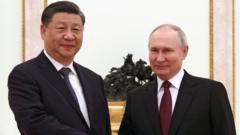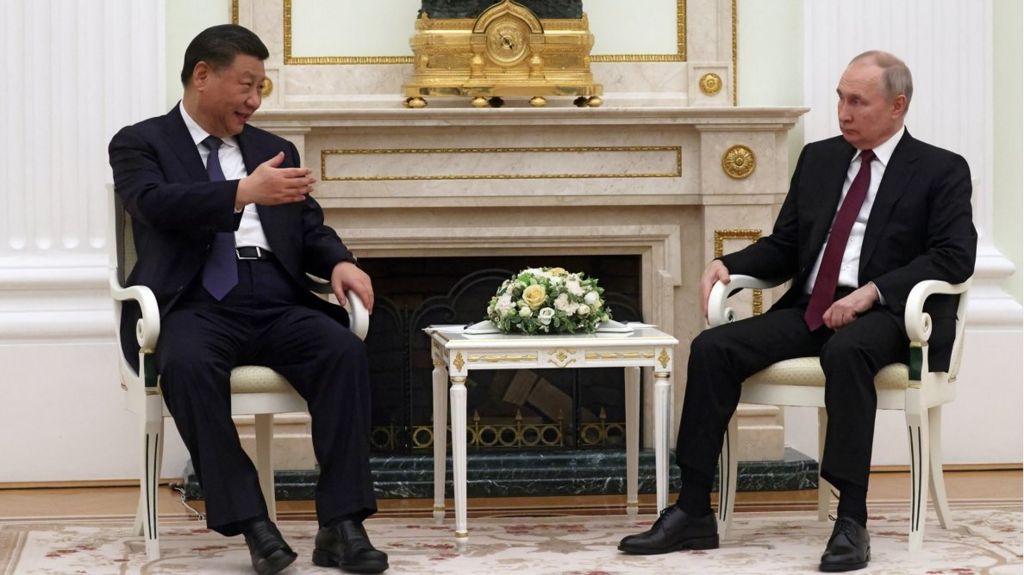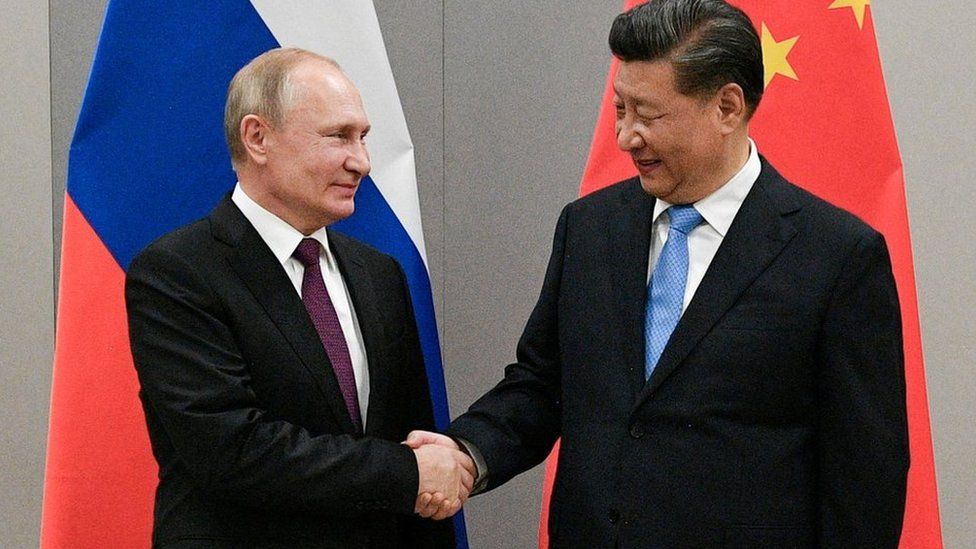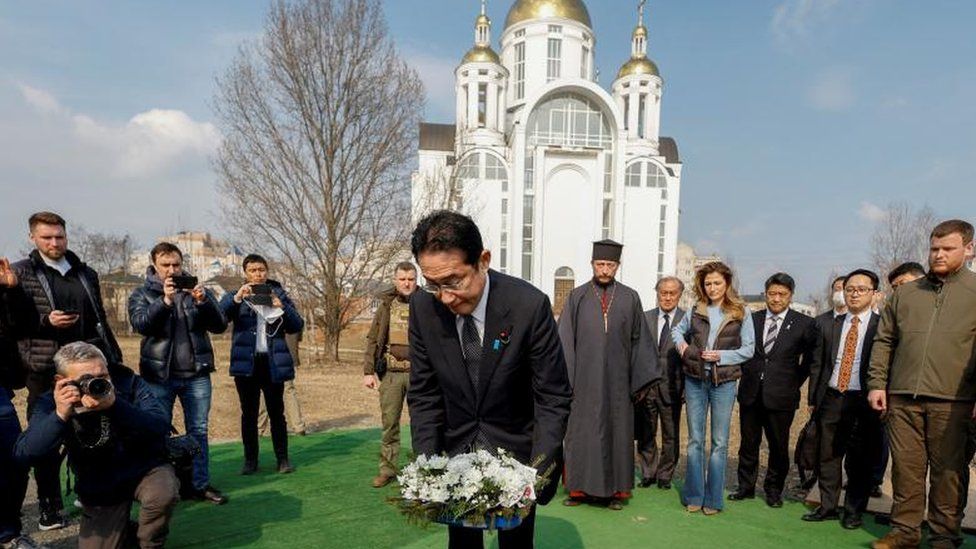
If ever you needed a demonstration of how the war in Ukraine is echoing in Asia, the schedule of the Japanese and Chinese leaders offers a prime example.
Both are on strategic foreign visits on opposing sides of the conflict.
Japan’s Prime Minister Fumio Kishida is in Kyiv where he is promising unwavering support to Ukraine’s president, with talk of reconstruction and humanitarian aid.
China’s Xi Jinping, meanwhile, is in Moscow and has been described by Russia’s Vladimir Putin as a friend and a partner. China may insist it is neutral, but it looks more Moscow leaning than honest broker right now.
On Tuesday, Mr Xi said China would prioritise its ties with Russia and described the two countries as “great neighbouring powers”.
Given events in Moscow, the optics and timing of Mr Kishida’s parallel trip is remarkable. So what can we read into it?
It is rare for a Japanese leader to make an unannounced foreign trip and Mr Kishida is the first to visit a country in conflict since World War Two.
The visit was kept a secret until just before his arrival early on Tuesday, with officials citing security concerns.
He will “show respect to the courage and patience of the Ukrainian people who are standing up to defend their homeland… and show solidarity and unwavering support” during his visit, the Japanese Foreign Ministry said.
Mr Kishida will also show his “absolute rejection of Russia’s one-sided change to the status quo by invasion and force”, the statement added.
Mr Kishida has been under growing pressure to visit Ukraine from his own ruling Liberal Democratic Party (LDP).
Until today, he was the only G7 leader not to have visited since Russia launched its invasion last year and there had been calls for him to go before he presides over a G7 summit in Hiroshima in May.
He had already secured one strategic diplomatic coup by holding a summit with South Korea’s president last week in Tokyo – the first time that had happened in more than a decade. Normalising ties with Seoul, sharing intelligence and showing a united front against North Korea will all reassure Japan’s strategic ally, the US.
The visit to Ukraine will no doubt be welcomed by Washington, too.
This video can not be played
To play this video you need to enable JavaScript in your browser.
Part of the Chinese leader’s ongoing visit to Moscow is an effort to expand the country’s global clout. The presence of Japan’s leader in Ukraine at the same time sends a strong message on where they stand within this geopolitical turmoil.
This is no mean feat, Japan has a lot of balancing to do especially in its relationship with China.
Last month, both countries held security talks here in Tokyo for the first time in four years. Beijing said it was troubled by Japan’s military build-up and Tokyo criticised China’s military ties to Russia and its suspected use of spy balloons.
These are the world’s second and third largest economies, and an open channel of communication is key despite their current tensions.
Japan also has its own concerns about the war in Ukraine. There is a deep worry about potential parallels between the Russian invasion and a worst-case scenario of Chinese military aggression against Taiwan – which would no doubt pull Japan in.
We are not there yet and may never be, but it is quite telling where each leader chose to be on Tuesday.
Related Topics
-
-
6 hours ago
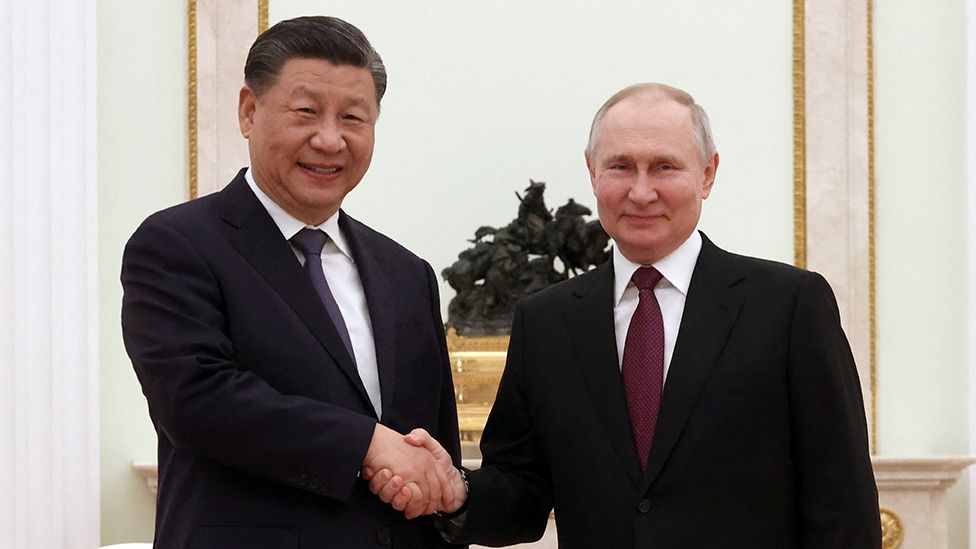
-
-
-
15 hours ago
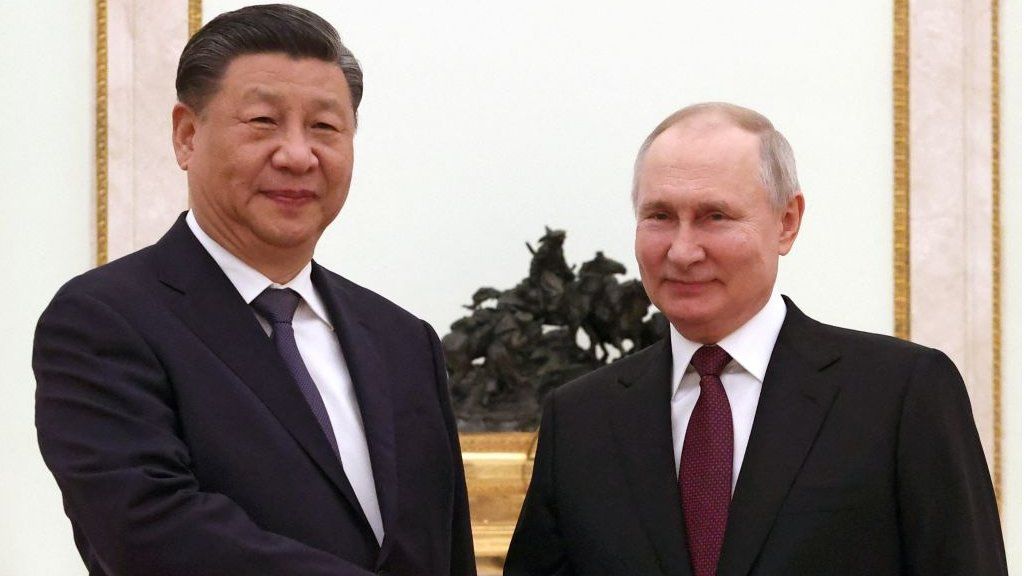
-

